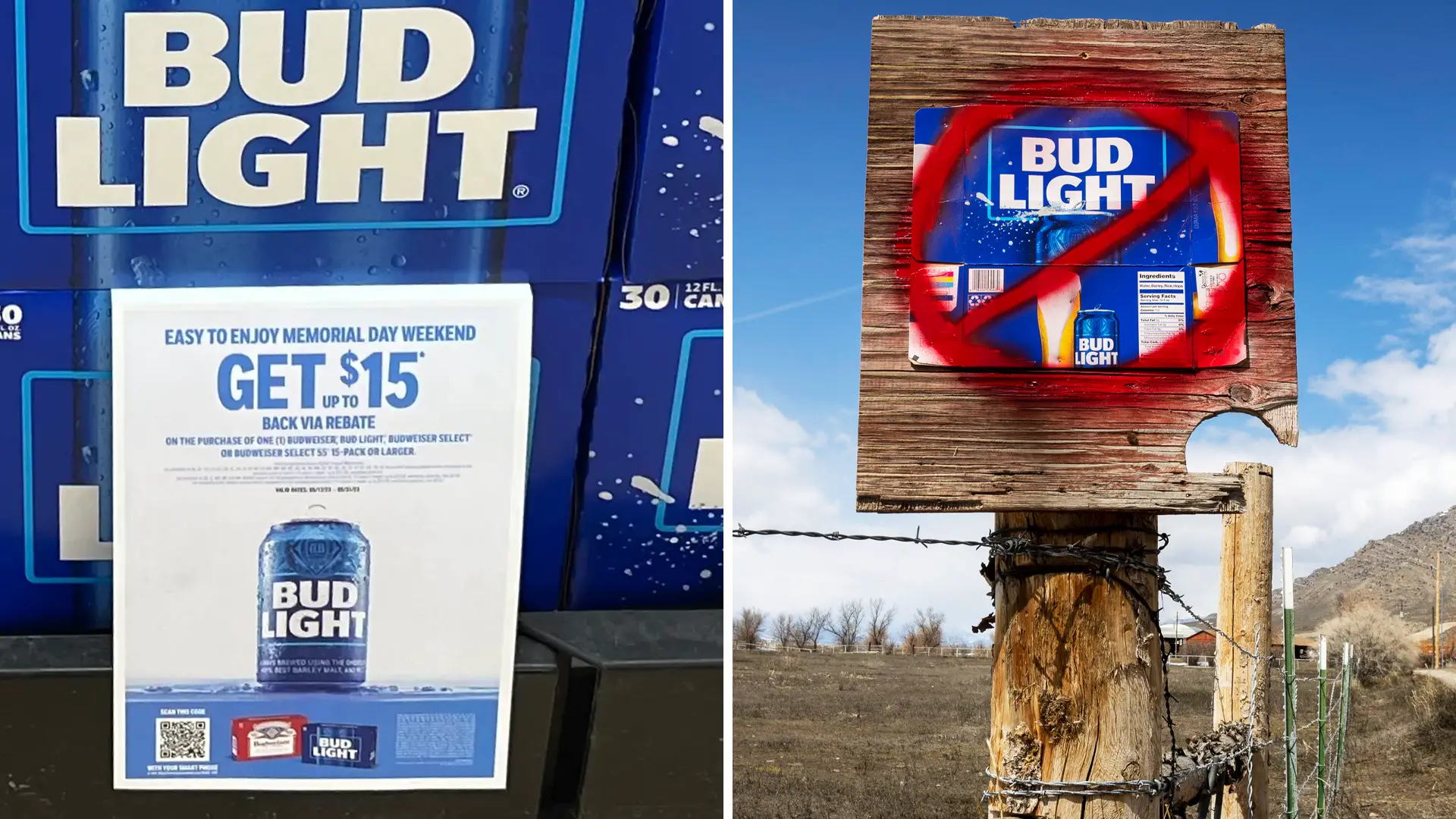As Memorial Day weekend, traditionally a high point in beer sales, kicked off, Bud Light was preparing for a less than celebratory mood. In stark contrast to the festive spirit associated with the holiday, Bud Light had to grapple with a sales slump, a decline that can only be described as dramatic, with sales plummeting 23.9% compared to the same period last year. A pivotal moment for most beer brands, Memorial Day’s sales downturn magnified an already worrying trend for Bud Light: weekly sales decreases hovering around 25%.
What triggered this storm in the beer market? A boycott that started about two months ago against Bud Light is the chief culprit. The backlash was a response to a marketing campaign featuring Dylan Mulvaney, a transgender influencer. Mulvaney’s campaign, aptly titled “365 Days of Being a Girl,” was launched on April 1, and it ignited significant disapproval among numerous segments of Bud Light’s consumer base.
Consumer boycotts are typically short-lived, losing momentum almost as quickly as they gain it. However, this one has proven tenacious. Its persistence can be attributed to a perfect storm of contributing factors – controversy surrounding the product, availability of alternative beer brands, outcry from political figures and celebrities, and the far-reaching echo of the campaign amplified on social media platforms.
Reacting to the sales downturn, Bud Light’s parent company, AB InBev, rolled out promotions offering money-back incentives to stimulate sales. However, it remains to be seen whether these measures can make up for the sales collapse. Promotions can hit a chord with certain consumers, but they can also invite backlash from others. The conundrum for Bud Light is navigating this challenging terrain and discovering a pathway back to growth.
Just last week, reports highlighted a significant plunge in the company’s shares, wiping out an astonishing $27 billion in market value since the start of the contentious campaign. The partnership with Mulvaney has left a portion of conservatives feeling ostracized, triggering a nationwide boycott of Bud Light and other Anheuser-Busch products. This boycott has set off a chain reaction, pushing Anheuser-Busch InBev’s market capitalization into a tailspin over the past two months.
Shares of Bud Light’s parent company, AB InBev, have plummeted more than 20% since the company rolled out its controversial marketing alliance with Mulvaney. Consequently, the company’s stock has nosedived to a new eight-month low of approximately $53, standing in stark contrast to broader market gains.
This downturn was activated on March 31, a day before Mulvaney posted a video on TikTok showcasing personalized Bud Light cans sent to her by the company, marking the anniversary of coming out as transgender. The company’s sales followed a similarly downhill path, sliding by 10% or more over each of the last four weeks compared to the same week last year, as reported by NielsenIQ data cited by Goldman Sachs. In terms of market capitalization, the loss for Anheuser-Busch has been substantial, amounting to $27 billion over the last two months.
The Bud Light debacle offers a sobering lesson to brands trying to navigate the choppy waters of social and political issues. As the dust settles, it remains to be seen if Bud Light can weather the storm and chart a course back to favorable sales and consumer approval.

